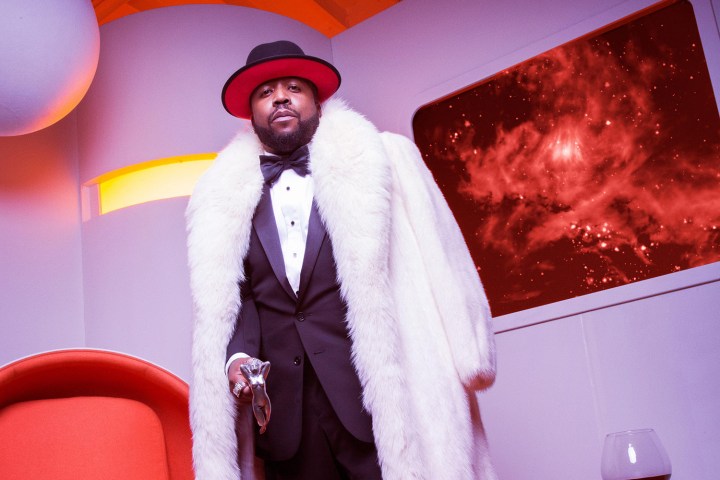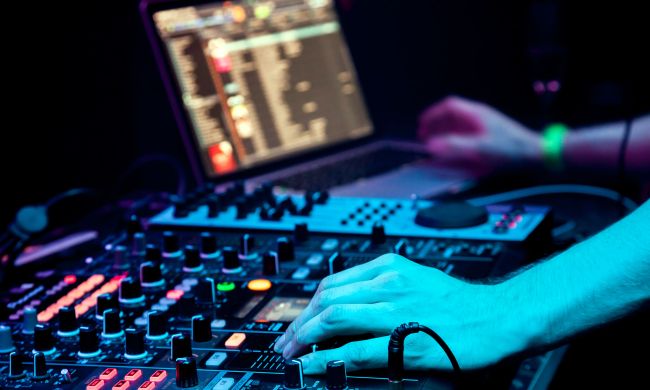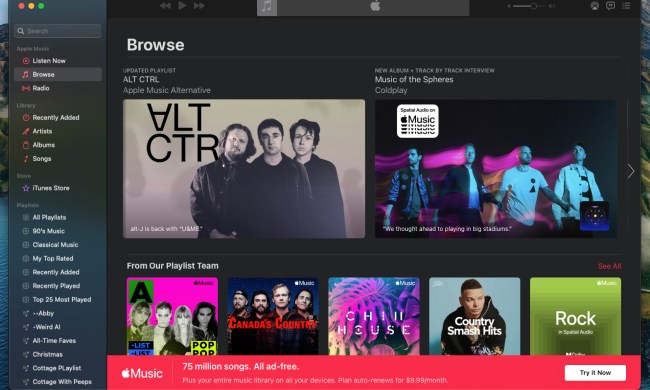
How do you make a full-course meal in a microwave when you’re used to taking your time?
That’s the kind of dilemma veteran rapper Big Boi of legendary hip-hop group Outkast faces as a generation of music fans has become accustomed to getting new songs daily on Spotify and SoundCloud instead of sporadically on radio. Lucky for Big Boi, he’s been making music long enough to stay relevant, regardless of generation.
“[Outkast] started when we were 16, 17 years old. So we grew up in this music, and evolved with it,” Big Boi told Digital Trends proudly. “It’s Jedi rap status right now.” Yet, as the world changed around the older Jedi like Yoda and Obi-Wan in the Star Wars canon, so has the music industry changed by leaps and bounds since Outkast crash-landed on the music scene with its Southernplayalisticadillacmuzik album in 1994. These days, a music critique is a tweet away from reaching millions of people. Every Outkast song ever recorded can now be streamed on devices the size of the cassettes that brought some of the group’s seminal albums to the world.
Regardless, while his former partner Andre 3000 has been more actor than rapper this decade, Big Boi keeps spitting rhymes as the clock keeps ticking time. His third solo album of this decade — Boomiverse — released over the summer, and he just premiered the animated video for his song In The South. Big Boi spoke with Digital Trends about the “microwave effect” of making music, what Outkast’s career would have been like if the group debuted in today’s era of social media, and which 1980s pop star he wishes he could collaborate with.
Digital Trends: Boomiverse sounds like a spacey hip-hop adventure. How did the name come about, and what was the impetus behind the album? What inspired you to do this kind of album?
Big Boi: Boomiverse, I compare it to the big bang theory. We call it the big boom theory. It’s just a reset. Every time we go in to make full albums, we try to start from a place where I’ve never gone before, which is challenging — making so many records all of these years and trying to keep the music fresh. So, it’s like starting from scratch.
Boomiverse is full of guest appearances. Killer Mike murders every verse he was on, especially on In The South. What collaborations did you record, or plan to record, that did not make the final album?
“I compare it to the big bang theory. We call it the big boom theory”
In terms of collaborations that didn’t happen, I was trying to get Kate Bush. That’s the only person I haven’t done a record with that I wanted to really work with. That’s the only one. Hopefully, on the next record, we can get her on it. I did get a chance to go to dinner with her, we talked about it, and I actually sent her the vinyl of Boomiverse.
You’ve been creatively mixing different genres for decades. The latest spawn of your creative mind is your animated In The South video. Why did you choose to go the animated route for such a song, and who was behind the video?
The guy, Corey Mo, who produced the record along with TM-88. The way the animated video came about, he has an animator down in Texas. With [the late UGK rapper] Pimp C not being here, it was a cool idea that he had for all three of us to be in the video together through an animation video. The song really speaks for itself. I wanted to do something fun. It’s really psyched out. The song’s what it is, man. That real, Southern slump.
Technology now has a bigger influence on an artist’s success these days. Billboard now counts streams from streaming services as single sales on the charts. That’s the biggest change the music industry has experienced in decades, in my opinion. As someone who was around when cassette tapes were popular, how do you think streams being included in album and single sales will affect hip-hop history?
“I like to slow-cook my (music) like Thanksgiving dinner.”
With Outkast, we went diamond. All of our albums are multiplatinum, physical sales. In this day and age, you can’t do that, because music is basically free. Soon as you put it out, anyone can upload it. So if they didn’t go and count the streaming route, nobody would do numbers like that. I guess they had to adapt to this day and age. Nobody is going diamond. That’s not happening anymore.
One way I think it’s already affecting hip-hop history is by older songs finally getting [Recording Industry Association of America] certifications. Missy Elliott’s Get Your Freak On and Work It from the early 2000s were certified platinum in 2016. Do you see streaming having that same effect on your solo catalog or Outkast’s back catalog since millions of people play your music all the time?
I haven’t checked what the numbers were in a minute, but I’m pretty sure they’re through the roof. I checked ATLiens and didn’t realize it sold 2, maybe 3 million now. Southernplayalisticadillacmuzik is probably double platinum. Everything we did that was platinum then is up now — way up.
Do you think counting streams toward album and single sales is a natural progression?
It’s an adaptation to where music went and how people consume music. They had to do something. From an artist standpoint, you can work on albums for three years, you put it out, and immediately nobody has to pay for it. It’s free. The shit started with Napster. My motto has always been the music right now is basically free, but the concert tickets, merchandising, and things like that, that’s where you build your brand at.
I just finished reading Stephen Witt’s How Music Got Free, and it broke down how the music industry ignored the internet during the late 1990s. What was it like when you first found out about Napster and the effect the internet could have on your music?
“Our path was so organically created, man. I wouldn’t have it no other way.”
When it first came out we were like, “goddamn.” [Outkast] just worked on this album for three years and now it’s all over the internet. For free! You’re just like “shit, fuck, how do you combat that?” Just like now, with the movie industry, they feeling it with this [Amazon] Fire Stick shit. You don’t even have to go to the movies no more. You have new releases right there, two to three weeks after its release. You got a crystal-clear 1080p version on the Fire Stick. It’s got to be the experience of going to the movies or going on a date. Same with music, it’s got to be an experience of going to your concert and giving them that Big Boi Boomiverse experience. You can’t just take that off the internet. Some things have to be personal.
You’re hip to the Amazon Fire Stick, so you stay current on the latest technology, to a degree. Have you tried virtual reality? If so, which Outkast music videos would work the best in VR?
Yeah, I’ve tried virtual reality. Definitely B.O.B. (Bombs Over Baghdad) because that was super psyched out. That was like one of my favorite videos. I know Elevators definitely would work, because that was like an alien adventure. Roses, to be inside the school. To be inside the fight scene, that shit would be hectic.
How do you think your career would have been different if it began in this social media and streaming era?
Our path was so organically created, man. I wouldn’t have it no other way. To come out in this digital era, it would be more streamlined to the fans, we wouldn’t have to go through a label. You could make music at your leisure and just put it out anytime you want to. You wouldn’t have to be in the system and wait on a Toni Braxton or a TLC to come out, and then wait for the cycle to come through to put out an Outkast album. Nowadays, I’m in the studio now, and I can record a song tonight and put it out in the morning. Or record it tonight and put it on Soundcloud tonight, if I can mix it in time. It’s a microwave effect almost. I like to slow-cook my shit like Thanksgiving dinner. I like to put my shit in the oven, and put the butter, the garlic on it.
You’ve been in the game for more than 20 years, have toured the world multiple times, sold tens of millions of records, and are pretty much solidified in the hip-hop hall of fame. What are you still making music for? Is it still to be the best rapper?
It’s past the point of being the nicest rapper. We’ve already proven what we do as far as that, individually. Right now, music is my passion. I love making music. I’m just constantly in the studio. When you have a creative mind, you have to have an outlet and a space to get it out. That’s what I’m doing. I love to make songs. To travel the world and see people sing the songs that you’ve been working on for two, three years is gratifying.





